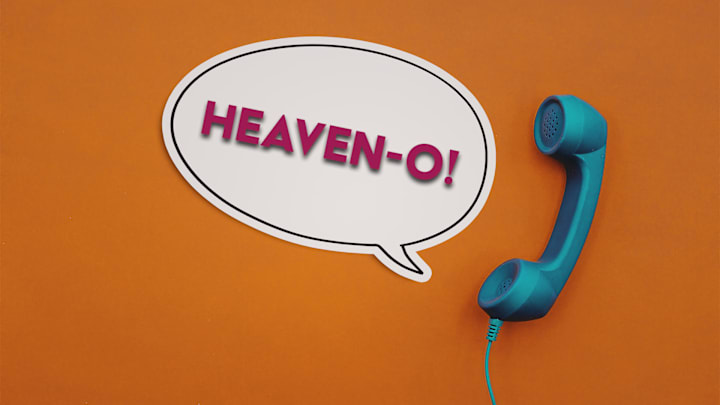Leonso Canales Jr. felt good. It was January 1997, and he’d just won a decisive battle in the quest to rid his South Texas community of a persistent and pervasive menace. It wasn’t a pest, a person, or any kind of institutional threat.
It was a word.
Hello.
The 56-year-old army veteran and owner of a flea market in his hometown, Kingsville—about 40 minutes’ drive southwest of Corpus Christi—had harbored ill will toward the salutation since 1988. That year, while answering a phone call from his brother, it struck Canales that in uttering hello, you’re also letting fly a curse word.
“Hell came right in my face in ’88,” he said, according to a 1997 Austin American-Statesman column by John Kelso. (Really, it had come out of his face.) Canales bristled at the tradition of beginning conversations with such a negatively coded syllable, and floated God-o as an alternative. His brother countered with heaven-o, which Canales liked even better.
The campaign to popularize the greeting didn’t begin in earnest until November 1996, when Canales purchased ads in Kingsville’s local newspaper promoting heaven-o below a crossed-out hello. He soon stepped up his game by asking Kleberg County commissioners to make heaven-o the official county greeting. His resolution explained that it would serve as a “symbol of peace, friendship, and welcome” that could benefit “the hippie turned yuppie” and everyone else living in the “age of anxiety.” On Monday, January 13, 1997, the commissioners unanimously voted to pass the resolution.

Though some county workers did start answering phone calls with heaven-o, it’s unclear how long that lasted—or whether the word ever really caught on outside government halls. One local convenience store employee told the Associated Press that she “[hadn’t] heard many people using it.”
Publicity-wise, however, Canales’s efforts proved pretty fruitful. The Salvation Army voiced their approval, and Canales even appeared (by satellite) on news programs abroad to talk about the initiative. Not all the feedback was feelgood, though. A North Carolina man named Carl Matthews claimed that he’d coined the expression some two decades ago and used it in a 1983 copyrighted book.
“He will have to yield,” Matthews told reporters. “I don’t mind them using it, but if you find a wallet, you return it to your rightful owner, right?” Whatever credit—monetary or otherwise—that Matthews had in mind for himself never materialized, due to the fact that copyrights don’t cover catchphrases (trademarks do).
And if Canales himself ever privately acknowledged Matthews as the true inventor of heaven-o, whoever penned Canales’s obituary in 2014 either didn’t know or simply decided against diminishing his legacy by mentioning it. “He was world renowned for his coined greeting ‘Heaven O,’” it read.
